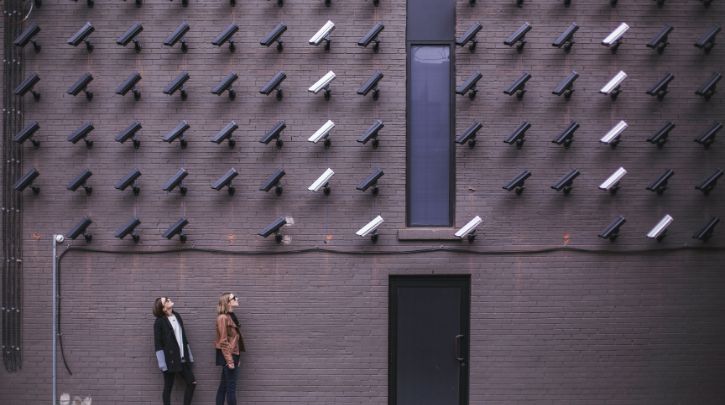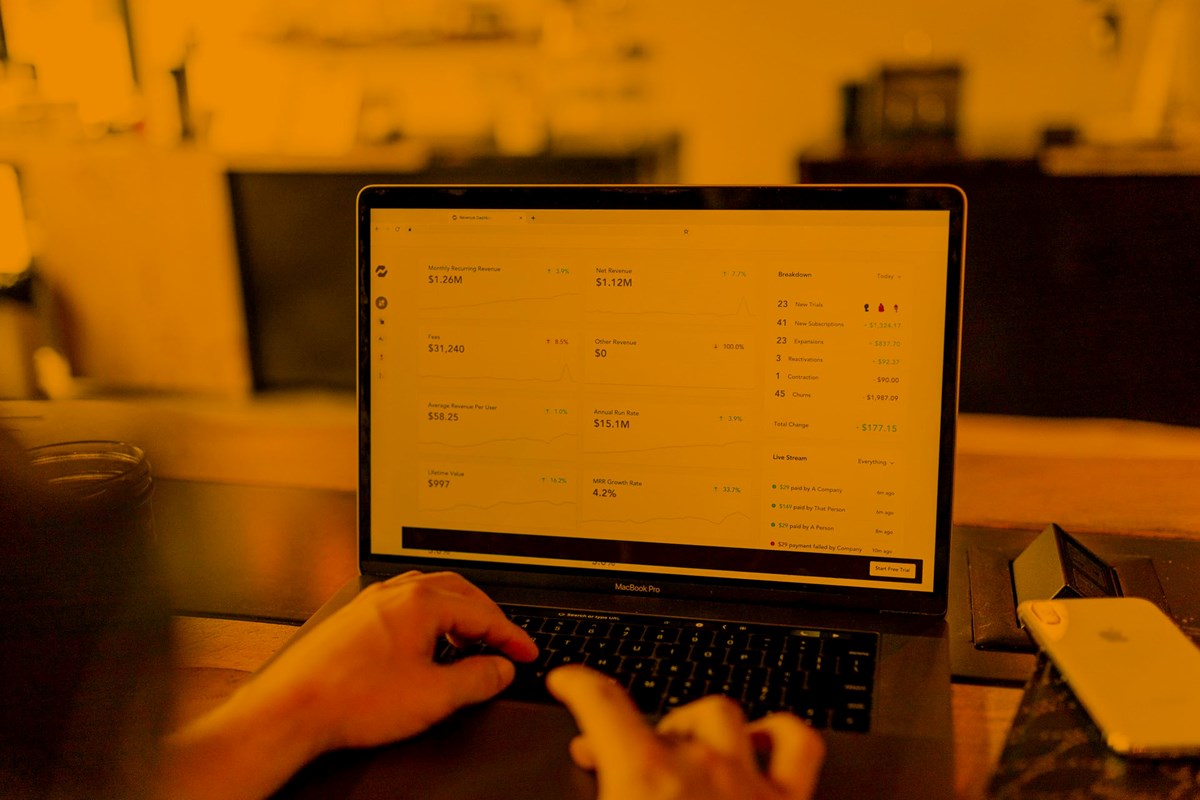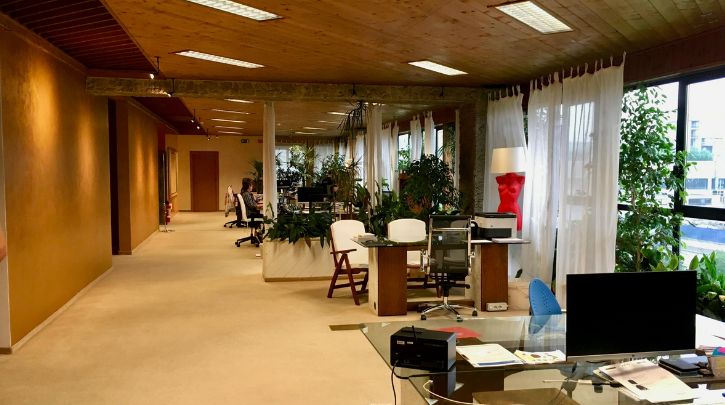- Coworking
- Coworking Resources
The Ultimate Legal Guide for Coworking Spaces

Coworking isn’t a serviced office, nor is it a business incubator. Many coworking spaces house freelancers, as well as startups and small businesses. As the coworking model usually doesn’t fit neatly within one legal framework, it makes workspace compliance a complex yet essential part of running a secure coworking business. To help protect your members and safeguard your coworking business, we’ve put together the ultimate legal guide for coworking spaces – the single, most complete legal checklist for coworking operators.
This legal guide for coworking spaces outlines the administrative aspects, but it isn’t a one-size-fits-all approach. Laws and regulations are subject to the country you operate. If you’re looking at your coworking space legal requirements, we recommend consulting with a trusted lawyer throughout the process.

Laying the foundation: business structure and insurance
Before opening the doors to your coworking space, you must have a valid business licence to legally cover yourself and operate from your chosen premises.
Once that’s in place, your next step is deciding on the type of business entity you’ll operate under.
In the UK, the most common options include:
Sole trader
Best suited for freelancers or independent entrepreneurs. If you’re the only founder of your coworking space, then registering as a sole trader is a simple place to start. A massive drawback, however, is the lack of legal separation between you and the business, which can make you personally liable if something goes wrong.
Limited company
Consider forming a limited company or partnership – a separate legal entity that provides liability protection for directors and shareholders. This structure can make it easier to raise funds, enter into contracts, and present a more formal business image. It’s also advisable if your coworking business has more than one founder.
LLC or partnership
Also suitable for businesses founded by two or more people. While a standard partnership is fairly straightforward, it doesn’t protect personal assets. An LLP offers limited liability while maintaining flexibility in how partners manage the business.
If you work with co-founders, making sure everyone involved signs a founder agreement before you start working together will help you move forward if a deadlock situation arises. It also outlines procedures if one partner leaves the business, sets up a competitor company, or fails to comply with your agreement.
Similarly, drawing up contractual agreements with anyone else you work with, such as designers, engineers, and strategists, protects your coworking business if conflicts arise.
The business entities listed above might not have the same frameworks in your country. After deciding which business entity route to go down, register your business activity for taxation purposes.
Insurance types
As part of your coworking space legal requirements, insurance is essential to protect it against unexpected risks. The right coverage ensures that you won’t be left facing financial or legal challenges alone if something happens.
Here are some of the key types of insurance to consider.
General liability insurance
Covers accidents, injuries, or property damage that occur on your premises, such as a member getting injured in your space. General liability insurance covers medical costs and potential legal claims.
Professional indemnity insurance
Protects you against claims of professional negligence, mistakes, or inadequate services. While not always mandatory, personal indemnity insurance is valuable if your coworking space offers consulting, mentoring, or business support services in addition to providing workspace.
This protects you if a client claims they’ve suffered a financial loss because of your professional advice, service, or negligence.
The Google group for Coworking is very active and many space founders and managers share their experiences, which can be really useful for someone who is starting out or stumbles upon an issue during the early stages.

The cornerstone: your membership agreement
While you might envisage your coworking space as a relaxed and flexible work environment, you should never bring members into your workspace without a coworking membership agreement. Why? Because a solid coworking membership agreement is your most important document setting out your terms, conditions, and responsibilities for you and your members. This helps prevent conflicts, giving you peace of mind as you grow your coworking space business.
Differing from member to member, the standard clauses of a coworking membership agreement might include:
Membership terms
Detailing your coworking member’s plan type will bind them to those terms and conditions. It’s important to state in your coworking membership agreement that the membership is non-transferable, to avoid members sharing access to your workspace with their family members, and hold responsibility for any unauthorised guests with members.
Payment terms
Detailing the payment terms of your coworker’s membership plan makes sure you get paid on time every month, enabling you to take action if payments are missed, including terminating the notice if necessary.
Termination conditions
Include the contract duration and the grounds on which the contract can be terminated, which may be on mutual agreement of both parties or due to one of the parties breaching any of the obligations outlined in the coworking membership agreement. You can also enforce this if you have a minimum length term for new members, such as three months, to protect your business.
Damage deposits
Your coworking membership agreement may also cover damage deposit terms, in case of furniture or installation damages during membership terms. This deposit is solely intended to cover repair or replacement costs (as opposed to covering unpaid fees).
Member obligations
It’s recommended that you clearly explain that your members are fully responsible for their individual business activities while using your coworking space. This includes covering themselves for appropriate tax purposes, and insuring their own equipment to avoid doubt if any personal items get damaged or stolen.
House rules
To create a harmonious coworking environment, it’s standard practice to have some house rules in place, detailing the behavioural expectations of users in the space. This can be used in your favour if your coworker conducts themself in a way that impacts the safety or inclusiveness of your space or goes against your values. To enforce them, both parties must sign your house rules.
House rules cover things like:
- Opening times and access systems to the space, so that members on specific plans understand its terms and conditions.
- Protocols around amenity usage.
- Use of your branding.
- Care of the space, so that coworkers maintain clean workstations, and treat other members’ belongings respectfully.
- Include a clause where members can’t move furniture in the space.
- Policies around guests and bringing pets into the space.
- How mail is received, stored, collected, and discarded.
- Behavioural expectations, enforcing respectful treatment of others, including team members, and how members conduct themselves in your space appropriately, covering details like music and noise levels. This clause is particularly important to maintain a safe and inclusive workplace.
Day passes
With today’s coworking model embracing more ad-hoc customers, by selling day passes to diversify revenue streams, it’s wise to have some kind of agreement in place to cover these services.
Although a lighter touch than a longer-term coworking membership agreement, consider the following when taking day pass bookings:
- Include a digital checkbox for acceptance of terms of use. This means anyone coming in on a day pass has accepted the house rules, giving you the right to eject anyone if they mistreat your conditions.
- Have coworkers sign a liability waiver upon entry to protect yourself against any risks.
- Take an emergency contact number in case the situation arises.

Protecting your members: data privacy and GDPR
To maintain a safe and harmonious workplace environment, you’ll need to collect your members’ personal information, such as their name, email address, billing details, and sometimes ID verification. By doing this, it’s important you comply with the European General Data Protection Regulation (GDPR) – a legal requirement with significant consequences, including large fines.
With this in mind, consider the following:
Data collection
You must obtain clear consent from coworkers before collecting, processing, and storing their personal data, in line with the data protection laws of your country. Make it clear why you’re collecting data and how it will be used. Only collect data that is useful for your business. For example, if you don’t need members’ home addresses, don’t collect this information.
Storage limitation
Implement policies and safeguards for handling data, including secure storage, limited access, and clear procedures for data retention and deletion. Be explicit about how long you intend to store members’ data, and your policies around terminating coworking membership agreements.
Photography and marketing
Some workspaces make the mistake of sharing images of their community members online without their consent, but this can be problematic. Before using any images of your community, obtain their explicit permission. Equally, if you’re planning on sending marketing communications, have a separate opt-in to comply with GDPR (as some members really don’t want to hear from you in a marketing capacity).
CCTV and security systems
You’re legally required to inform members and visitors if you use CCTV. Display signs at all entrances, and check specific legislation on video surveillance in your country.
Members’ rights
Remain transparent in your data collection processes; members must be aware of what data is held about them and are granted requests for corrections or deletion if asked, ensuring data is kept up to date. Having an available privacy policy on your website (or in member portals) enables coworkers to seek out this information and gather an understanding of their rights at any time.
Data breach procedure
Outline what you’ll do if there’s a data breach, who to notify internally, and how you’ll inform any affected members.
Sharing with third parties
Explain to members that third parties may have access to their data, and how you’ll manage this. If you partner with another organisation, you must receive your members’ explicit permission before sharing their data with them.
Keeping your space safe: health, safety, and accessibility
As a coworking operator, you have a duty of care to look after your coworking members while they use your workspace. Managing the following aspects will keep your workspace safe, healthy, and accessible:
Fire safety procedures
Your coworking premises must comply with certain aspects of fire safety, such as the minimum number of emergency exits, maximum distance to escape routes, the structural fire resistance, emergency lighting, extinguishers, or other aspects that must be considered in accordance with the legislation in force in the country in which you’re operating. Test your fire alarm regularly (some workspaces do this at the same time every week), to make sure it’s working properly.
Your members must be aware of your evacuation points and your nominated fire officer – an individual in your team who is responsible for relevant fire safety procedures. Depending on where your coworking space is located, having protocols in place for other kinds of emergencies and natural disasters might be necessary.
First aid standards
UK businesses must follow health and safety standards, have adequate first aid equipment available in an accessible location, and at least one trained first aider present during business opening hours. When members sign up, whether on a monthly membership or day pass, make sure you obtain an emergency contact number too.
Accessibility policies
To maintain a truly inclusive workspace, an accessible coworking space is a minimum requirement for people with reduced mobility. In many countries, this is a legal requirement, such as under the UK’s 2010 Equality Act, where service providers have a legal duty to make reasonable adjustments for people with disabilities, such as having step-free access and accessible toilets. Although these regulations will vary from country to country, considering them works towards creating an inclusive work environment.
Regular risk assessments
We cannot stress the importance of asking a specialist about the characteristics with which your premises must comply. Firstly, check with a reliable engineer or architect that your coworking space premises comply with local regulations and ask them to give you an idea of the works and installations that you need to meet the requirements of a safe and inclusive workspace.
Carrying out routine risk assessments will also identify hazards, reduce risks, and demonstrate compliance. This includes addressing any slip or trip hazards, wiring inspections for electrical devices, and PAT testing (Portable Appliance Testing) equipment. Some operators also test member equipment to reduce risk. Regular cleaning, safe waste disposal, and clear policies around food preparation areas are useful.
Operating under a management agreement
If you operate in agreement with a larger entity or landlord, then some of the regulations mentioned above may differ and be the responsibility of your landlord or business partner. Regardless of who is responsible for them, implementing the correct regulations is essential to safeguard your community and ensure everything is in place before opening your coworking space.

Other important legal considerations
Coworking spaces are more than just office rentals, with coworking delivering a wide range of services from internet access to electricity and cleaning to professional meetups and networking sessions. Today’s coworking spaces even include gym facilities, F&B services, and wellness suites.
Coworking spaces spanning many services create legal grey areas. Here are some additional legal considerations to think about in yours:
Music licensing
If your coworking space plays music in communal areas or hosts events with music, you may need a public performance license from organisations such as PRS for Music and PPL in the UK. Playing copyrighted music without a license can result in fines and legal action.
Alcohol licenses
Offering food, drinks, or alcohol may require separate licenses under local or national law. For instance, an alcohol licence is required in the UK if a business intends to sell, supply, or allow consumption of alcohol on the premises. If you’re organising any boozy social events, consider the health and safety risks for your members too.
Food hygiene and safety
You may need to consider having food hygiene certification and compliance with health and safety regulations in kitchens or cafes. Make sure staff and third-party vendors are trained and certified where necessary. This unfortunately means you shouldn’t encourage your members to make food and bring it in for everyone’s enjoyment.
Meanwhile, members can bring food in for their own consumption, and having clear policies around food preparation and cleanliness in your kitchen keeps everyone safe.
Member IP
Your coworking community is typically made up of professionals working at different companies that are privy to each other’s information. In your coworking membership agreement, outline the need for confidentiality with regard to coworkers’ professional activities and your security measures, too.
When you’re thinking about your coworking technology partner, make sure you work with a company that understands the risks around WiFi systems and can provide a safe network to protect your members’ business activities.

How technology supports legal compliance
Managing legal compliance across fire safety, data protection, accessibility, and member agreements can feel overwhelming. However, if you partner with the right technology company for your coworking business, much of this can be simplified and meet workspace compliance requirements.
Platforms like Nexudus provide built-in tools to help coworking operators stay compliant while minimising paperwork and risk. Here’s how:
Digital signature
Collect member signatures for contracts, house rules, and waivers securely through the member portal. Once signed, agreements are legally binding and time-stamped.
Coworking membership agreement storage
Keep all agreements in one place. This reduces the risk of lost paperwork and ensures you can demonstrate compliance if challenged.
Secure handling of member data
Protect sensitive member data and allow for collecting explicit marketing consent in line with GDPR.
Maintaining clear operational records
Maintain clear records of payments, bookings, and usage in one centralised system.
With coworking spaces offering a mix of services and attracting diverse communities, legal requirements can vary but remain essential. From membership agreements and insurance to GDPR, health and safety, and licensing, there’s a lot to cover. Fortunately, when you find the right coworking technology partner, you can simplify compliance and protect your business while focusing on your members.
This legal guide for coworking spaces is merely a guide, and not legally binding in any way. Always consult a trusted legal advisor when you’re organising coworking regulations, and consider the laws and regulations in the country you’re operating in.
An original version of this guide was written in collaboration with Maica Cabello and Laia Benaiges, founders of LECO, a legal consultancy firm in Tarragona, Spain.
Want to know more about
how Nexudus could help your business?
We’re here to answer any questions you have.
Latest articles
-

- Coworking
- Coworking Resources
The Ultimate Legal Guide for Coworking Spaces
There are so many factors that need to be taken into account before opening a coworking space:...
Lucy McInally on August 27, 2025 -

- Coworking
- Coworking Resources
10 SMART Goals for your Coworking Space + KPIs to Steal
Coworking is synonymous with creativity, collaboration and productivity. Businesses and freelancers love coworking spaces because (by surrounding...
Kate Tattersfield on August 26, 2025 -

- Coworking
- Coworking Resources
- Technology
Want to Spend Less Time on Admin and More Time with Members?
Lucy McInally on August 21, 2025


